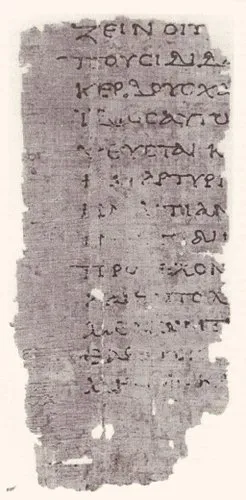Paul's Epistle to Titus, Part 4: The Mercy of God and Justification in Christ
The Epistles of Paul – Titus, Part 4: The Mercy of God and Justification in Christ
The opening remarks to the podcast have been published separately under the title Dating the Passover.
In the last portion of this commentary on Titus, we had made a few brief remarks on the closing verses of Titus chapter 2, and promised to elaborate on a few things when we resumed. So to begin this evening, we shall repeat those verses, beginning from Titus 2:11 where Paul wrote:
11 For the delivering favor of Yahweh [א interpolates “the Savior”; the text follows A, C, D, and the MT which varies slightly] has been displayed to all men, 12 teaching us that, rejecting impiety and the lusts of this Society, discreetly and righteously and piously we should live in this present age,
Paul’s words seem to take it for granted that men should understand the favor of Yahweh once they hear the message of the Gospel. But the lesson to be learned is not merely a personal lesson in admonitions to do or not to do certain things. Christ would not have had to die on the Cross for that, and it is unlikely that His enemies would have even killed Him for that. Rather, the message of the Gospel is much deeper than that: in large part it is a historic lesson, that the children of Israel were alienated from Yahweh their God for their sins, and they were oppressed and ruled over by the enemies of God and man because of their alienation. But they were reconciled to God in Christ when He died on their behalf, which made their reconciliation possible according to His law. All of the nations to which Paul had brought the Gospel were descended from those ancient Israelites who had been alienated from Yahweh their God, and who have to learn the lesson which Paul describes.






 Please click here for our mailing list sign-up page.
Please click here for our mailing list sign-up page.








Recent comments